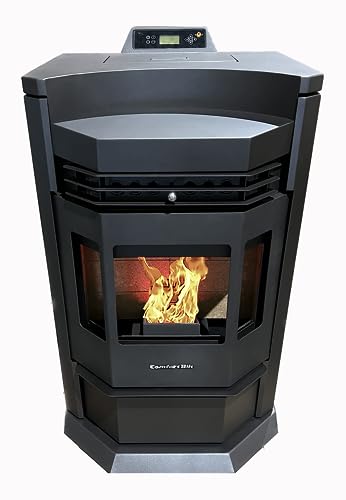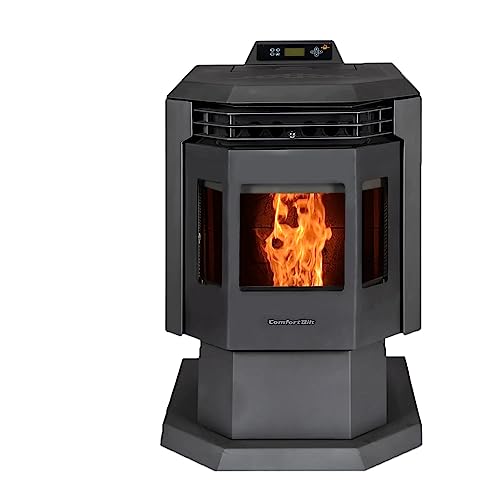How To Outsmart Your Boss Pellet Stoves For Rvs
페이지 정보
작성자 Brent 작성일 24-11-02 14:45 조회 5 댓글 0본문
 Pellet Stoves For RVs Vs Wood Stoves
Pellet Stoves For RVs Vs Wood Stoves RVs offer a cozy camping experience, however cold nights require a reliable heating source. Wood stoves and pellet stoves are two of the most popular options. Both have advantages and the one that is best pellet stove inserts for you will depend on your needs and preferences.
RVs offer a cozy camping experience, however cold nights require a reliable heating source. Wood stoves and pellet stoves are two of the most popular options. Both have advantages and the one that is best pellet stove inserts for you will depend on your needs and preferences.Pellet stoves are powered by a biomass fuel that is made from recycled wood chips and sawdust. They are highly efficient, and they provide consistent heating. They are simple to use, and don't emit harmful emissions.
Heating that is economical
pellet stoves inserts stoves are an excellent alternative to propane heaters. They use a renewable biomass source and have a high combustion efficiency, which can save you money over time. They also use less electricity, reducing carbon footprints and energy consumption. Pellet stoves are lightweight and can be used in conjunction with any propane tank that is standard. This makes them a great option for those looking to skip the hassle of refilling and the storage of propane tanks.
One of the most important aspects of any stove is its capacity to provide heat to a large area. A high-quality stove will be able to warm the entire motorhome or camper. The top pellet stoves for RVs can produce up to 8,000 BTUs of heating, enough to keep you warm and comfortable on a camping trip. Certain models come with thermostats that can be programmed to automatically turn the stove off and on depending on your schedule. They can also notify you when the pellets are low or need to be cleaned.
Wood stoves and pellet stoves are both popular options for RVs, and both provide excellent heating performance. They are also cost-effective and can be used in different climates. However, you must be aware of the differences between these two types of stoves before making a decision.
Wood stoves require firewood which is collected with care and stored. This can be a problem for those who travel in remote areas. Wood can also absorb moisture from the air, which can cause problems with your RV's interior. However you can find an array of pressed wood composite fire logs for your RV stove from online retailers. These logs can help you save time and effort as you focus on your adventures instead of refilling your tank.
Convenient cooking
If you're a camper who likes to cook, you'll love the ease of cooking on pellet stoves. These stoves are designed to provide maximum heat extraction from the fuel. This results in high energy efficiency and lower heating costs. They also have automatic pellet feeding systems and thermostatic controls that ensure the same temperature settings. They can also be used in times of emergency or during an outage of power as a backup heating source.
Wood stoves are a popular choice for RV camping. They offer a traditional and cozy camping experience and are a great option for boondocking (camping without hookups). They require ongoing maintenance and regular cleaning to get rid of creosote and ashes. They also rely on firewood, which can be expensive in remote areas and hard to locate. In addition, they typically require proper ventilation to stop the accumulation of carbon monoxide and smoke inside the camper.
Pellet stoves offer the same heating performance as wood stoves, and require less maintenance. They are also cheaper than gas heaters, and produce fewer ash and particulates. Pellet stoves also operate as greener fuel source than wood and pellet stove (writeablog.net) stoves.
While pellet stoves are more efficient than wood stoves, they still require connection to an electrical power source. Your stove will not work properly if the electricity fails. This could lead to a dangerous situation. To ensure your safety and comfort, it's a great idea to have an emergency generator on hand or prepare for power outages. Fortunately, many wood and pellet stoves are equipped with battery-backup systems or manual ignition options to help prevent these issues.
Versatile
Wood pellet stoves are a great choice for RVs, as they provide a warm and comfortable atmosphere, while also being cost-effective. They can also serve as a backup for power outages. Certain models come with an emergency battery backup system that ensures that the stove is always in operation. Pellet stoves are easy to use and require minimal maintenance. However, it is important to keep in mind that they do require proper installation and ventilation.
In contrast to propane stoves, which introduce gases and moisture into the air they use dry combustible fuel that produces clean, odorless heat. They are also more simple to use than traditional wood stoves and they produce more heat in a shorter amount of time. Besides offering heating they can also be used to cook food, which can transform your RV into a fully functional kitchen. This is especially beneficial in remote locations, and it can also help you save money when eating out.
In addition to being more affordable, pellet stoves are also safer than electric and gas models. They also have a lower emission rate, which reduces the chance of fire damage and indoor air pollution. You should be aware that they require electricity to operate their automatic ignition systems and pellet feed system. In addition, they could require more frequent refills of pellets than gas stoves.
Before installing wood stoves in your RV, you should consider some factors and limitations. For instance, you'll need to keep the wood supply close by and ensure that your RV has enough storage space to accommodate the stove's hopper. Wood stoves can cause ceilings and walls to warp or blister. To prevent this from happening you should think about buying a stove with an insulation layer or a surface-protection kit.
Compact
Pellet stoves can be operated easily and are compact. They feature a powerful combustion process, and high heat output making them an ideal option for RVs. They also disperse heat evenly, which ensures a comfortable camping experience. You can easily control the amount of heat you want to produce and maintain a consistent temperature. The SoloWilder PIKE Camping pellet stove for garage stove, for instance is built to last, with a sturdy design and an optimized heating system that makes it a fantastic choice for campers.
The pellets are put in the fuel hopper before being fed into the burner pot by means of an auger. The pellets are usually made from sawdust and wood byproducts however some stoves will accept other biomass like nutshells or corn kernels. The fuel is very dense, which allows it to burn clean and hot, reducing smoke and waste emissions. These stoves have a high energy efficiency, ranging from 70 to 83 percent.
Most pellet stoves require minimum of maintenance and they are easier to use and lighter than traditional wood stoves. They can be noisy and they require a location to store pellets that is cool and dry. They are also electric and require power (not suitable for camping off-grid). If you are considering a pellet-burning stove, choose one that has an energy-efficiency certificate.
Pellet stoves are more expensive and require more storage space than traditional wood-burning fire places. The pellet bags are expensive and can go through 40 pounds every day. In addition, they require electricity and may use up your backup battery.
Safety
Pellet stoves allow you to enjoy a warm fire in your RV without having to store or transport firewood. They also produce less smoke and ash than wood stoves, and are easy to light. They also provide a warm, cozy atmosphere. It's important to know the risks to health that come with using a wood pellet stove. For those with respiratory issues as well as older adults and children should be extra cautious prior to using a pellet stove.
Most models have an electronic control system which automatically feeds pellets to the combustion chamber. This lets them burn at the desired speed. They also come with thermostats that can be programmed to maintain the desired temperature level. They also come with an automatic cleaning system which suctions up the accumulated ash or clinker.
A pellet stove requires electricity and ventilation in order to function, despite its modern features. It might not function in a power failure. In these scenarios it is essential to have a backup plan to meet your heating needs like purchasing a generator.
Another concern with pellet stoves is that they utilize a combustion process that releases toxins into air, such as carbon monoxide. This is a serious issue for those suffering from chronic respiratory illnesses, such as COPD or asthma. As a result, it's essential to purchase carbon monoxide detectors, and to place them in your home. They should be placed close to bedrooms, on every floor of the home and checked regularly.
Pellet stoves are ideal for camping, particularly in areas that experience harsh winter conditions. They are simple to use and affordable however they require electricity to operate. If you plan to camp off grid, you will need to ensure you have enough wood to power your stove.
- 이전글 The 10 Most Terrifying Things About Double Glazing Hinges
- 다음글 Five Killer Quora Answers To Bmw Car Key Replacement
댓글목록 0
등록된 댓글이 없습니다.

